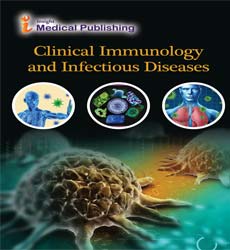Antiretroviral resistance in HIV-1 patients from King Faisal Specialist Hospital and Research Center (KFSH&RC), Riyadh, Saudi Arabia
A major complication of antiretroviral therapy is the development of resistance mutations that limit drug effectiveness. Very limited data are currently available on emerging HIV-1 drug resistance mutations in Saudi Arabia. Here, we present HIV- 1 resistance data from clinical isolates of patients referred to and treated at KFSH&RC, Riyadh, Saudi Arabia. A retrospective analysis was done on the drug resistance mutation (DRM) profiles of 450 patients at KFSH&RC, who are undergoing HAART protocols and experienced virological failure with DRM detected by sequencing. These tests were done at our reference laboratory in Mayo clinic. The evaluation for DRM was at the earliest available testing done and diagnosed within 1 year of their estimated date of infection at KFSH&RC. All necessary comparisons of mutations and statistics were made. Our study showed that the DRM reported was similar to the annual international report, interestingly; the profile of mutations with each drug within the antiviral group was different from the international report. Additionally, a new set of novel mutations was also seen, that were neither reported nor seen in any international ARV drug resistance report. Resistance to ARV represents an increasing problem to patients at KFSH&RC. While some are infected with viruses harboring pre-existing mutations, most resistance mutations seem to develop during treatment and may be related to wrong treatment or patient non-compliance. Dissemination of drug resistant HIV-1 adds burden to the HIV-1 epidemic in the Middle East. Annual reporting of these DRM will aid in the development of ARV protocols.
Open Access Journals
- Aquaculture & Veterinary Science
- Chemistry & Chemical Sciences
- Clinical Sciences
- Engineering
- General Science
- Genetics & Molecular Biology
- Health Care & Nursing
- Immunology & Microbiology
- Materials Science
- Mathematics & Physics
- Medical Sciences
- Neurology & Psychiatry
- Oncology & Cancer Science
- Pharmaceutical Sciences
